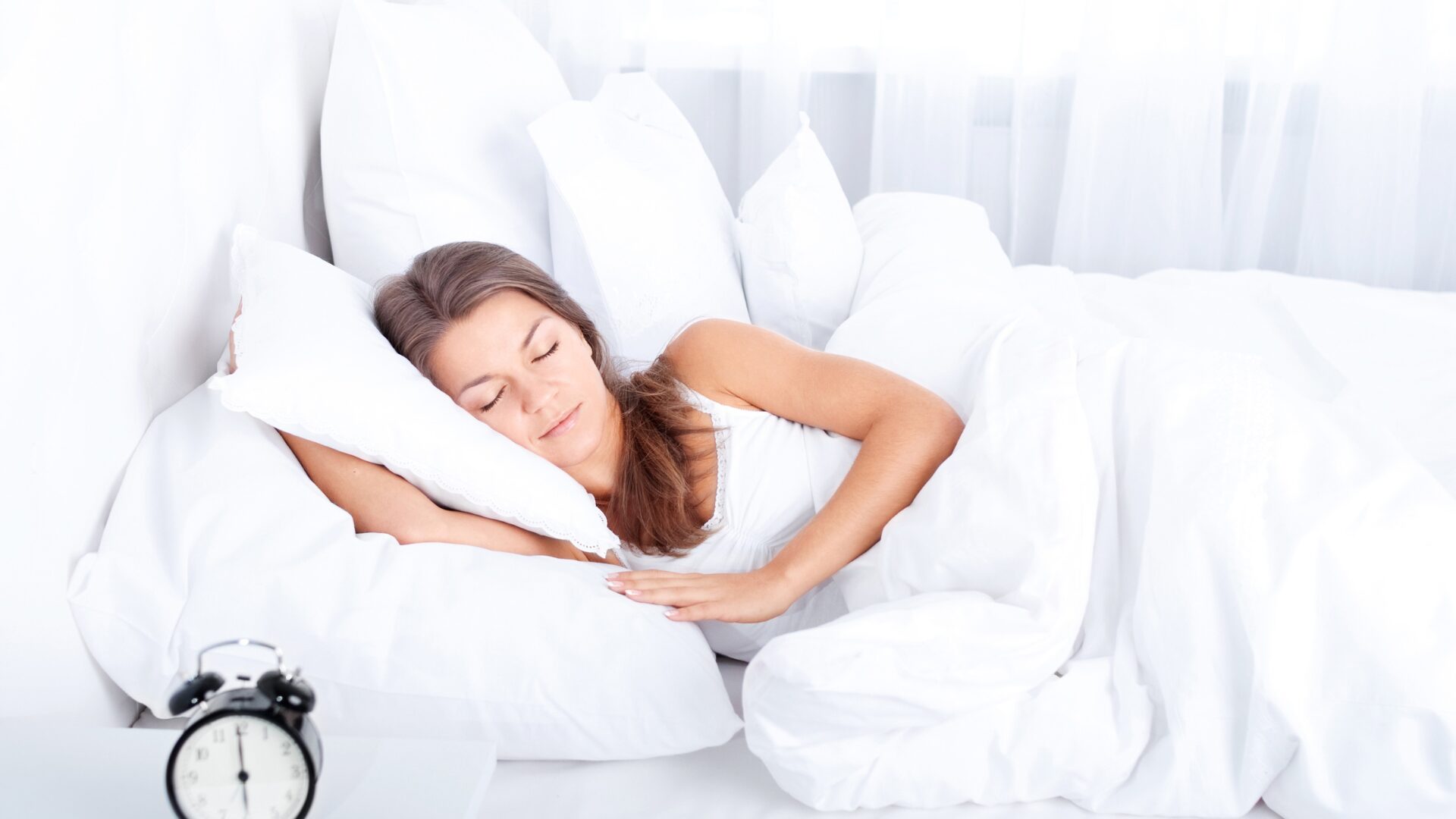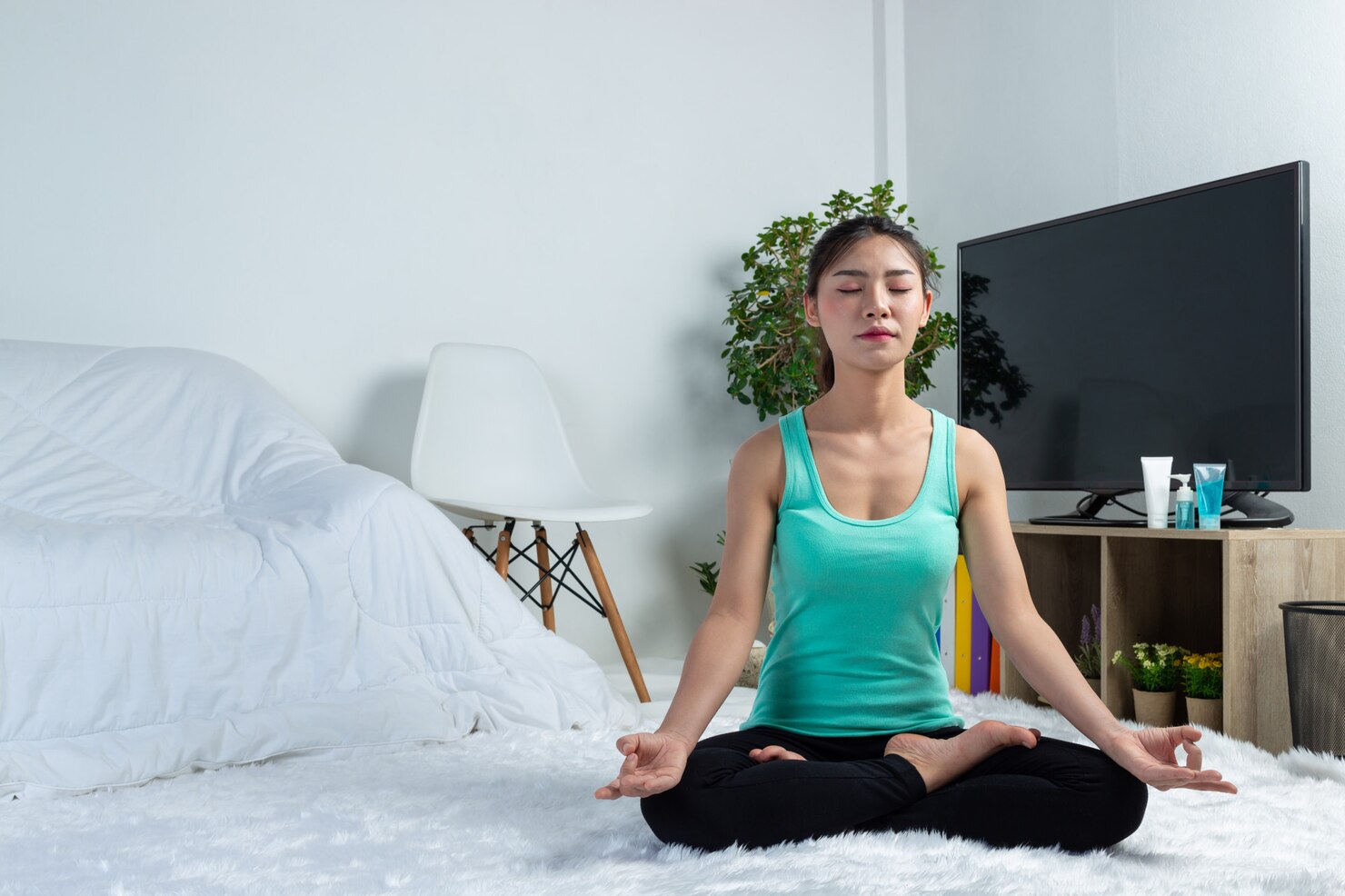Top 10 Ways to Fall Asleep Fast

Do you often find yourself tossing and turning at night, unable to drift off to sleep? If so, you’re not alone. Many people struggle with falling asleep quickly, leading to restless nights and tired mornings. But don’t worry, there are simple and effective ways to help you fall asleep faster. In this blog, we’ll explore the Top 10 Ways to Fall Asleep Fast and wake up feeling refreshed. From creating a cozy sleep environment to understanding the science behind sleep, we’ve got you covered. Say goodbye to sleepless nights and hello to peaceful slumber with these easy-to-follow tips. Let’s dive in and discover how you can improve your sleep and enjoy the benefits of a good night’s rest!
The Science Behind Sleep
Sleep is more than just a time for rest; it’s essential for our overall health. Our bodies have an internal clock called the circadian rhythm, which tells us when to sleep and wake up. This rhythm is influenced by light and darkness. When it gets dark, our brain produces a hormone called melatonin, which makes us feel sleepy. During sleep, our body repairs itself, our brain processes information, and we prepare for the next day. There are different stages of sleep, including light sleep, deep sleep, and REM (rapid eye movement) sleep, each playing a crucial role in keeping us healthy. Understanding the science behind sleep can help us make better choices to improve our sleep quality. By following a consistent sleep schedule and creating a good sleep environment, we can work with our body’s natural rhythms to get the restful sleep we need.
Top 10 Ways to Fall Asleep Fast
Having trouble falling asleep can be frustrating, but there are many effective techniques to help you drift off quickly. Here are the top 10 ways to fall asleep fast, explained in simple and easy language.
1. Create a Sleep Schedule
Going to bed and waking up at the same time every day helps regulate your body’s internal clock, known as the circadian rhythm. Consistency is key to better sleep. When you stick to a regular sleep schedule, your body learns when it’s time to sleep and when it’s time to wake up. This makes falling asleep easier and faster. Even on weekends, try to go to bed and wake up at the same time. This helps maintain the routine. Over time, your body will get used to the schedule, and you’ll find it easier to fall asleep at night and wake up feeling refreshed in the morning.
2. Limit Screen Time Before Bed

The blue light from phones, tablets, and computers can interfere with your sleep. Avoid screens at least an hour before bedtime to help your body wind down. Blue light can trick your brain into thinking it’s still daytime, making it harder to fall asleep. To avoid this, try reading a book, listening to calming music, or engaging in another relaxing activity before bed. You can also use settings on your devices to reduce blue light. By limiting screen time, you help your brain understand it’s time to sleep, making it easier to fall asleep quickly.
3. Create a Relaxing Bedtime Routine
Engage in calming activities like reading, taking a warm bath, or practicing meditation to signal to your body that it’s time to wind down. A relaxing bedtime routine can make a big difference in how quickly you fall asleep. Start by doing something calming an hour before bed, like reading a book or listening to soft music. You could also try deep breathing exercises or gentle yoga. A warm bath can help relax your muscles and make you feel sleepy. By creating a routine, you signal to your body that it’s time to prepare for sleep, making it easier to drift off when you finally go to bed.
4. Ensure Your Bedroom is Comfortable
Keep your bedroom cool, dark, and quiet. Invest in a comfortable mattress and pillows to improve your sleep quality. A comfortable sleeping environment is crucial for falling asleep quickly. Make sure your bedroom is cool, as a lower temperature can help you fall asleep faster. Darkness is also important because it tells your body it’s time to sleep, so consider using blackout curtains or an eye mask. Noise can be disruptive, so try earplugs or a white noise machine if your environment is noisy. Lastly, having a comfortable mattress and pillows that support your body can make a huge difference in how quickly you fall asleep and how rested you feel in the morning.
Also Read: Top 10 Tips to Create a Cozy Bedroom
5. Watch Your Diet
Avoid heavy meals, caffeine, and alcohol before bed. Opt for light snacks if you’re hungry late at night. What you eat and drink can affect your sleep. Heavy meals can make you feel uncomfortable and restless, so try to eat dinner a few hours before bedtime. Caffeine and alcohol can also disrupt your sleep. Caffeine is a stimulant that can keep you awake, so avoid it in the afternoon and evening. While alcohol might make you feel sleepy at first, it can interfere with your sleep cycle and make you wake up during the night. If you’re hungry before bed, choose a light snack like a banana or a small bowl of cereal. This can help keep hunger at bay without making you feel too full.
6. Stay Active During the Day
Regular physical activity can help you fall asleep faster, but avoid vigorous exercise close to bedtime. Exercise is great for improving sleep, but timing matters. Regular physical activity can help you fall asleep faster and enjoy deeper sleep. Aim to get some exercise every day, whether it’s a walk, a workout at the gym, or a bike ride. However, try to finish any vigorous exercise at least a few hours before bedtime. Exercising too close to bedtime can make it harder to fall asleep because it increases your heart rate and body temperature. Instead, opt for gentle activities like stretching or yoga in the evening to help you relax.
7. Manage Stress and Anxiety

Practice relaxation techniques like deep breathing, yoga, or progressive muscle relaxation to calm your mind and body. Stress and anxiety can keep you awake at night, making it difficult to fall asleep. To manage stress, try practicing relaxation techniques. Deep breathing exercises can help calm your mind and body. Focus on taking slow, deep breaths, and try to clear your mind of any worries. Yoga and progressive muscle relaxation are also effective ways to reduce stress. In progressive muscle relaxation, you tense and then relax each muscle group in your body, starting from your toes and working up to your head. These techniques can help you feel more relaxed and ready for sleep.
8. Limit Naps
Long daytime naps can interfere with nighttime sleep. If you need to nap, keep it short and sweet, around 20-30 minutes. Napping during the day can be tempting, especially if you didn’t get enough sleep the night before. However, long naps can make it harder to fall asleep at night. If you need to nap, try to keep it short—around 20 to 30 minutes. This is enough to refresh you without interfering with your nighttime sleep. Also, try to nap earlier in the day, rather than in the late afternoon or evening. By keeping naps short and sweet, you can ensure that you’re tired enough to fall asleep quickly when it’s time for bed.
9. Use Sleep-Inducing Scents
Aromatherapy with lavender or chamomile can create a calming environment that promotes sleep. Certain scents can help you relax and fall asleep faster. Aromatherapy uses essential oils like lavender and chamomile, which are known for their calming properties. You can use these oils in a diffuser, spray them on your pillow, or add a few drops to a warm bath before bed. The soothing scents can help reduce stress and anxiety, making it easier for you to relax and fall asleep. Creating a calming environment with sleep-inducing scents can make your bedtime routine more enjoyable and effective.
10. Listen to Soothing Music or Sounds
Gentle music, white noise, or nature sounds can help you relax and fall asleep faster. Listening to soothing sounds can be a great way to help you fall asleep. Gentle music, white noise, or nature sounds like rain or ocean waves can create a peaceful environment that promotes relaxation. You can find playlists or apps specifically designed for sleep. Experiment with different sounds to see what works best for you. By incorporating soothing music or sounds into your bedtime routine, you can create a calming atmosphere that makes it easier to drift off to sleep quickly.
Also Read: How to Find the Perfect Mattress for Your Back Pain
Benefits of a Good Night’s Sleep
Getting a good night’s sleep is crucial for overall health and well-being. Here are some key benefits:
Improved Memory and Learning: Quality sleep helps consolidate memories and enhances learning. During sleep, your brain processes and organises information, making it easier to recall and apply new knowledge.
Enhanced Mood and Emotional Well-being: Adequate sleep helps regulate your mood and emotions. It can reduce stress and anxiety, leading to a more positive outlook on life and better emotional resilience.
Boosted Immune System: A well-rested body has a stronger immune system. Good sleep improves your body’s ability to fight off infections and illnesses, keeping you healthier overall.
Better Physical Health: Quality sleep supports various aspects of physical health, including heart health, metabolism, and weight management. It also promotes muscle recovery and overall physical performance.
Increased Focus and Productivity: A good night’s sleep enhances concentration, problem-solving skills, and productivity. You’ll find it easier to stay focused and complete tasks efficiently when you’re well-rested.
Reduced Risk of Chronic Conditions: Consistent, quality sleep lowers the risk of developing chronic conditions such as diabetes, high blood pressure, and cardiovascular disease.
By prioritising sleep, you can enjoy these benefits and improve your overall quality of life.
Sleep Disorders: Symptoms and Solutions

Conclusion
A good night’s sleep is crucial for maintaining overall health and well-being. By understanding the science behind sleep and implementing effective strategies, you can significantly improve your sleep quality. From creating a consistent sleep schedule and limiting screen time before bed to managing stress and ensuring a comfortable sleep environment, there are numerous ways to help you fall asleep faster and enjoy the benefits of restful slumber.
If you suspect a sleep disorder might be affecting your sleep, it’s essential to consult with a healthcare professional for accurate diagnosis and treatment. Whether it’s insomnia, sleep apnea, restless legs syndrome, narcolepsy, or parasomnias, proper management and treatment can help you achieve better sleep.
By prioritising sleep and making mindful changes to your routine and environment, you can enhance your memory, mood, immune system, physical health, and overall quality of life. Say goodbye to sleepless nights and embrace the journey towards peaceful, restorative sleep. Sweet dreams!


Leave A Comment
You must be logged in to post a comment.